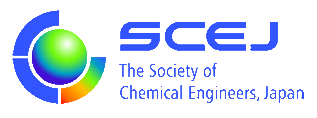Last Update: 2021-04-15 14:58:30
Session organized by Industry
Oral session (SS-1 to SS-6)
SS-1 Technological Innovation That Supports Japanese Industry -
Mar. 21 (Sun) 9:00-12:00 Hall F (Program)
The chemical industry needs to aim to promote and improve people's "health, security and happiness", and is required to change from "Efficiency" to "Sufficiency". While SDGs and ESG management are attracting attention worldwide, this time we will select themes with "Life Cycle Assessment", "renewable energy", and "introduction of AI and DX" in mind, and introduce the latest technologies.Organized by Center for Academia-Industry Exchange SS-2 "Continuous Flow Production" Progressing from Fine Chemicals to the Pharmaceutical Industry -
Mar. 21 (Sun) 13:30-17:10 Hall F (Program)
Flow synthesis, is attracting attention not only in the field of basic chemicals but also in various industries as a continuous production process that replaces batch production. In the pharmaceutical field as well, the FDA (US Food and Drug Administration) recommends continuous production, and research and development of continuous flow processes is accelerating rapidly. In this session, we will introduce the current status and future prospects of flow synthesis and micro-reactors, as well as examples of development and practical application at related chemical companies and equipment companies, and examples of deployment to the pharmaceutical industry.Organized by Industrial Development Workshop, Center for Academia-Industry Exchange GT Committee, Center for Academia-Industry Exchange SS-3 Management Issues of Chemistry Related Industries - The Post-Corona Social and Economic Outlook, the Future of the Chemical-Related Industry and SDGs and Circular Economy - -
Mar. 21 (Sun) 13:00-17:30 Hall G (Program)
This new type of corona virus has changed our society and our lives. Companies are also undergoing major changes in their relationships with customers, employees, and society, and the corona wreck is said to be the "last opportunity" for change. There are also many voices saying that the essence of Corona's evil is the SDGs. The Management Systems Research Committee planned a symposium last year on the theme of "SDGs and the Circular Economy," but unfortunately we could not set up a forum for discussion. Therefore, at this year's symposium, based on last year's "SDGs and Circular Economy," we would like to discuss the post-corona social and economic outlook of Japan, and the future of the chemical-related industry.Organized by Research Management Committee, Center for Academia-Industry Exchange Registration is FREE for participants attending only for the public sessions (SV-1, SV-2, SV-3, HC-11, HC-12, and SS-3) as an audience (not as a speaker). See Details SS-4 Challenges to the Plastic Supply Chain for Non-Fossil Resources -
Mar. 22 (Mon) 9:00-12:00 Hall F (Program)
In order to solve environmental pollution problems caused by waste plastics, and to reduce CO2 and eliminate fossil resources in the chemical industry, it is indispensable to realize highly recycling-oriented societies and to make use of alternative resources. This session introduces strategic initiatives for recycling of difficult-to-recycle plastics through chemical recycling, utilization of plant resources such as bioplastics, and recycling of CO2 emission, and this session discusses the path to the plastic supply chain toward 2050.Organized by Center for Academia-Industry Exchange SS-5 Utilization of Informatics, AI Technology for the Future and Steady Efforts to Improve On-site Capabilities -
Mar. 22 (Mon) 9:55-15:40 Hall G (Program)
The industry has begun efforts to utilize informatics, AI technology, IoT, and big data for the future. At the production site, the issues are the shortage of human resources and how to improve the quality of human resources. On the other hand, at "manufacturing sites", although automation and the introduction of equipment for reducing the number of staff are progressing, there are sites where staff have to rely on humans, and the utilization of IoT has become an issue. In this session, we will introduce examples of advanced companies from the perspective of how to utilize AI, IoT, and big data for future on-site capabilities.Organized by SCE-Network, Center for Academia-Industry Exchange SS-6 Unit Operation Which Should Not be Forgotten - Mixing Technology to Support Process Intensification - -
Mar. 22 (Mon) 13:00-15:40 Hall F (Program)
A chemical plant process is a combination of basic unit operations. However, in the actual process, there are many events that cannot be dealt with by the overview of unit operations in textbooks. Under such circumstances, each company will introduce examples of correspondence and the latest technologies. The theme of this time is "Mixing Technology to Support Process Intensification" that includes many basic unit operations.Organized by Center for Academia-Industry Exchange
Poster session (SP-7 and SP-8)
SP-7 Utilization of Informatics, AI technology for the Future and Steady Efforts to Improve On-site Capabilities (Poster session) -
Mar. 22 (Mon) 16:00-17:30 Hall Q (Program)
The industry has begun efforts to utilize informatics, AI technology, IoT, and big data for the future. At the production site, the issues are the shortage of human resources and how to improve the quality of human resources. On the other hand, at "manufacturing sites", although automation and the introduction of equipment for reducing the number of staff are progressing, there are sites where staff have to rely on humans, and the utilization of IoT has become an issue. In this session, we will introduce examples of advanced companies from the perspective of how to utilize AI, IoT, and big data for future on-site capabilities.Organized by SCE-Network, Center for Academia-Industry Exchange SP-8 Unit Operation Which Should Not be Forgotten - Mixing Technology to Support Process Intensification - (Poster session) -
Mar. 22 (Mon) 16:00-17:30 Hall Q (Program)
A chemical plant process is a combination of basic unit operations. However, in the actual process, there are many events that cannot be dealt with by the overview of unit operations in textbooks. Under such circumstances, each company will introduce examples of correspondence and the latest technologies. The theme of this time is "Mixing Technology to Support Process Intensification" that includes many basic unit operations.Organized by Center for Academia-Industry Exchange









